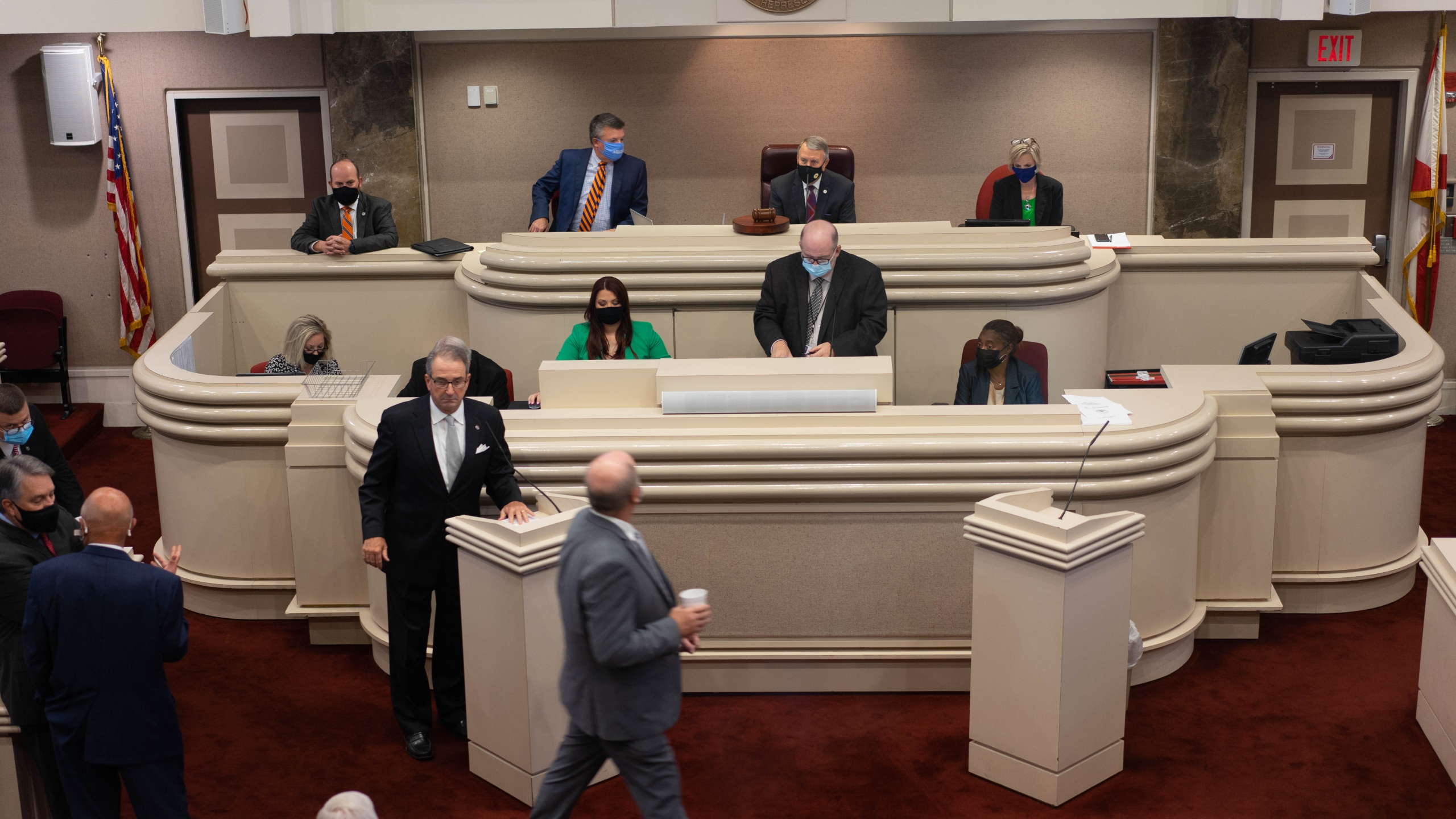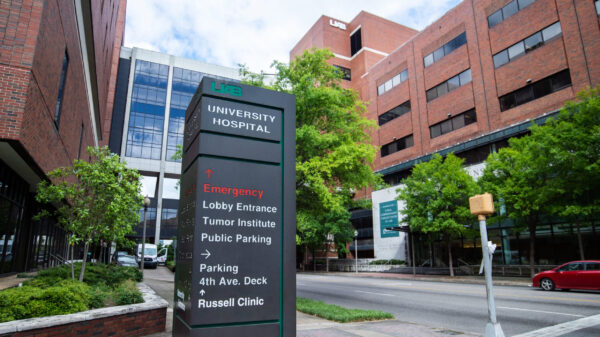|
Getting your Trinity Audio player ready...
|
Alabama Senate lawmakers on Thursday approved the state’s $1.06 billion planned allocation of American Rescue Plan Act funds, finalizing what is likely the final injection of federal pandemic-era relief funds into the state of Alabama and ending the first special session of this legislative year.
More than half, roughly $660 million, of the $1.06 billion is being appropriated for eligible water, sewer and broadband infrastructure investments, with up to $260 million of that tranche earmarked specifically for broadband improvement and expansion statewide. Up to $400 million of that section is specifically designated for clean water, sewer and storm water infrastructure projects.
The next largest section, roughly $339 million, will go toward healthcare around the state, including two $100 million chunks of reimbursements for both hospitals and nursing homes meant to counter costs incurred as a result of the pandemic.
Two allocations of up to $40 million in reimbursements were approved for both the State Employees’ Insurance Board and Public Education Employees’ Health Insurance Board under the legislation passed on Thursday, and $25 million was also approved for mental health services and programs in the state.
“We’re trying our best to invest in Alabama’s future and I think we’ve done a fairly good job of that,” said State Sen. Greg Albritton, R-Atmore, who shepherded the legislation through the state Senate, after the body’s adjournment.
The federal relief spending plan reached the Senate floor on Thursday after being amended during a meeting of the Senate Finance and Taxation General Fund committee the previous day. The committee amendment further defined the uses of the $400 million in federal funds cleared for use on water and sewer infrastructure projects, allowing them to be spent on storm water projects by city governments.
State Sen. Chris Elliott, R-Daphne, offered the amendment on Wednesday, and it was approved by the body without objection after a short period of discussion among Senate leadership.
During deliberations, State Sen. Rodger Smitherman, D-Birmingham, offered a successful amendment on the floor, adding language to aid small towns with grant-matching applications and prohibiting any state agency from denying grant applications submitted in a timely manner “based on a technical deficiency ” without first offering to help the applicant with the application. The amendment was approved by the full Senate 29-1.
State Sen. Linda Coleman-Madison, D-Birmingham, also offered a floor amendment before Smitherman, but later retracted it without objection.
Later in the day, the Alabama House concurred 96-0 with the amended legislation, with final enactment of the legislation now resting with Gov. Kay Ivey. Six members of the House abstained from voting.
The potential for Senate amendments had led Rep. Rex Reynolds, R-Huntsville, to warn that the special session could drag into Friday, but the amendments only drew concerns from a few members on the floor before the House eventually approved the updated bill.
Rep. Mary Moore, D-Jefferson, expressed concerns that smaller counties may not be able to make a 35 percent match required by Amendment 1 on grant programs for storm drain infrastructure.
“Without questions moving the ARPA funds to where they need to be to help the people across the state was a big deal,” said Speaker of the Alabama House Nathanial Ledbetter on Thursday. “Spending it on wastewater and mental health and nursing homes and hospitals and veterans homes and things of that matter, I think it’s a big deal for the state.”
The bill’s passage marks the culmination of the state legislature’s first special session of this legislative year, with the regular session to resume on Tuesday.



















































